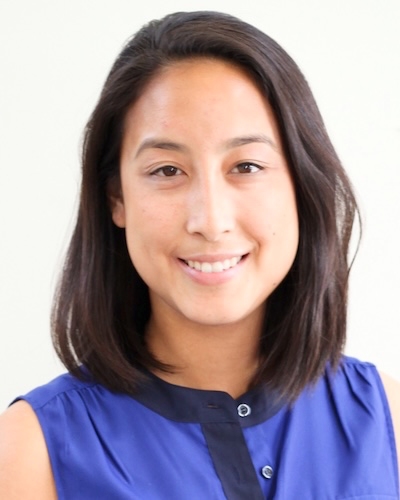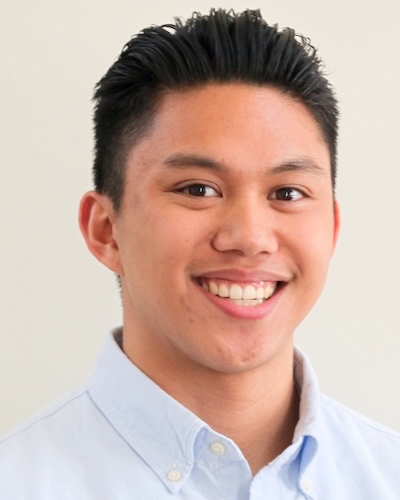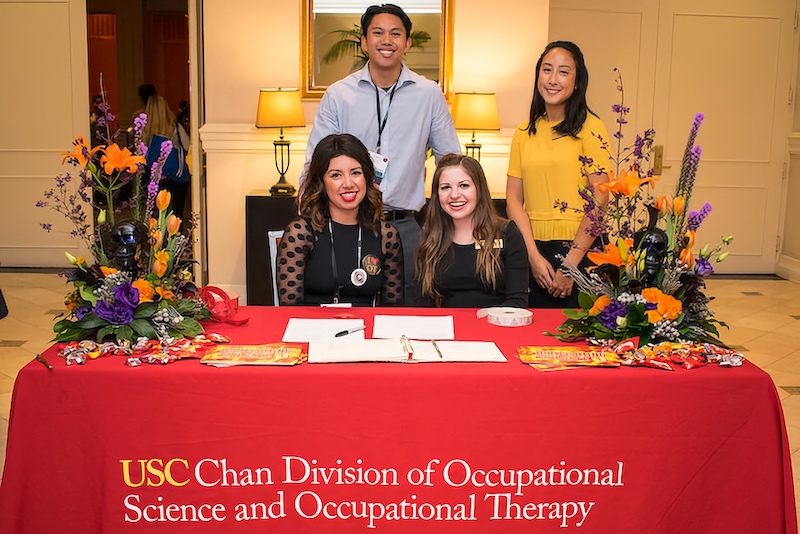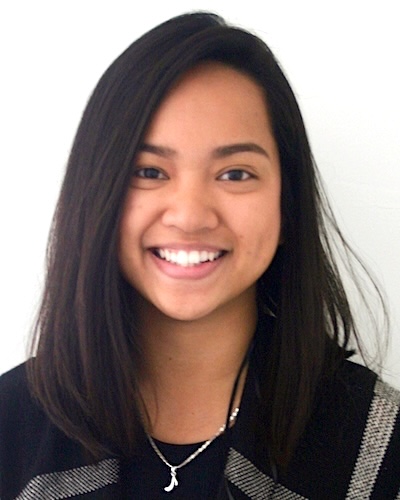Student Blog

Excellent Externship Experience! ⟩
February 8, 2017, by Kimmy
As part of OT 540: Leadership Capstone, one of the final required courses of the Master’s program, all students embark on a two-week long externship experience. During this course, students learn about the many skills that contribute to being a leader. Various facets of leadership include developing strong personality traits, collaborating on interdisciplinary teams, joining professional organizations, and understanding a profession’s role within a wider job market. In California, occupational therapy is represented by the state organization Occupational Therapy Association of California, as well as at the national level with the American Occupational Therapy Association, both of which advocate on behalf of occupational therapists by protecting the scope of practice, supporting research, and publicizing the profession.
In addition to weekly questionnaires and a public policy discussions, the main project of the class is centered on the Leadership Externship. Different from an internship, an externship is a short-term immersion in a new experience. Externships emphasize active observation, in which exposure to new opportunities leads to the development of new ideas.
One of the greatest features of this assignment is that it is student-driven, meaning it is up to you where you want to go, what you want to learn, and how you will learn it! Students develop their own learning objectives and shape the externship process around meeting them. Because the class is focused on leadership, the ultimate goal is to learn about management, advocacy, and professionalism.
One of the other greatest features of this assignment is that the externship dates are scheduled right before Spring Break, giving students the opportunity to travel for an additional third week. The combination of student-driven work and three weeks off from classes allows many students to complete externships out-of-state — or even internationally! Global Initiatives, the department within the Chan Division focused on international connections, organizes multiple Student Exchange Programs. Through these programs, students complete the externship at partnered universities to observe occupational therapy programs at different universities and experience the field of occupational therapy in a different country!
In just over two weeks, I will embark on my externship to Griffith University in Australia, so stay tuned for travel updates. 😊
⋯

Financing USC: Scholarships Edition ⟩
February 7, 2017, by Jessica
In continuing with my “Financing USC” series, this week’s post is all about scholarships. Students are always interested about what scholarship options are available, and the likelihood of getting one. Hopefully this brief post can help answer some of those questions!
There are scholarships available to students from the OT division based on academic merit and potential for special contributions to the field of OT. The most common are the Division Tuition Scholarships, which are awarded on the basis of academic achievement, mainly for first-year entry-level Master’s students. The amount of the scholarship varies each year and between students, and goes directly to help pay for your tuition. A highly competitive scholarship through the OT division is the Research Assistantship, which is awarded based on academic merit primarily to first-year entry-level Master’s students. For this scholarship, generally 8 units of tuition are covered per semester, with a $5500 stipend per semester, with student health services and student health insurance included. Keep in mind, though, that these are really hard to get! Another unique option is to become a Division Student Worker! These are considered division awards, and students chosen for these positions will fulfill varies duties for faculty and staff members. Typically, only 2nd years receive these positions. Some of the jobs you could have in the division are being a classroom assistant, a fieldwork assistant or office assistant, and being a student ambassador (like us!). Students in these positions get paid hourly for their work, and have a flexible schedule of about 10 hours per week. If you’re interested in any of the division scholarships, be sure submit the scholarship application at the same time you submit your application for the program.
There are many other unique scholarship options through the division, as well as outside of USC, which are listed on our website. Check that out and see if you’re eligible to apply for any of those scholarships!
⋯

Why USC? ⟩
February 6, 2017, by Erwin
Why should I attend USC? Many prospective students ask this question looking for a convincing sales-pitch. However, my job isn’t to sell people on USC, but rather, let them know the opportunities available here. USC is a wonderful school and we have an amazing program. However, it may not be the right fit for everyone. With that being said, here are a few reasons why I think USC OT stands out from the crowd:
- Networking
The Trojan Family is a powerful thing. Because of USC’s status in OT, and really the world, I wanted to be well-connected and part of that Trojan network. Being at USC has opened doors for me that I’m not sure would have been possible if I had went to another university. - Leadership
I strongly feel that what makes USC unique to other programs is its commitment to leadership. USC is known to be a leader for the profession of occupational therapy and the school encourages students to become leaders themselves. At USC, there are tons of opportunities for students to get involved — whether through student organizations or support from faculty to pursue your own leadership interests. Being at USC, I’ve grown so much as a leader and I know the skills I’ve learned here will benefit me throughout my career. - Research
USC is also known for its research contributions. Occupational science, the science that serves as the foundation for occupational therapy, was invented here at USC and we continue to be at the forefront of research. Some of the most exciting and groundbreaking research is being done in our division and students have the opportunity to be research assistants. When I entered the program, I didn’t have much interest in research, but it really is so important to validate what we do as therapists and to discover more effective treatments so that our clients can receive the best care. - Faculty
USC’s faculty consists of some of the best therapists and researchers in the world. Being leaders in occupational therapy, many of our faculty are the ones writing our textbooks so they can answer any questions you may have. In addition, they are so supportive and almost all have an open-door policy so that you can discuss anything from school to life.
Ultimately, it is up to you to decide if USC is the right fit for you. Everyone has their own priorities and path to become an occupational therapist. For myself, going to USC was absolutely the best decision.

Me with the other student ambassadors!
⋯

Financing USC: Loans Edition ⟩
January 31, 2017, by Jessica
The most common questions I’m asked from prospective and admitted students are always about the cost of USC and how students pay for it. Rightfully so — USC is definitely a financial investment! However I do think it’s worth it — the caliber of the professors and quality of education you get here makes your USC degree truly valuable. I’m going to briefly share about some of the options you have in order to finance your OT education at USC. This post will focus on student loans.
Federal Loans
Most students do take our loans in order to pay for a majority of their tuition, fees, & living costs while in the program. Federal loans are the most common, and typically have lower interest rates than private loans. As a graduate student, you are typically eligible for the Direct Unsubsidized Loan (also referred to as Direct Stafford Loan) and the Direct PLUS Loans. To be eligible for the Direct Unsubsidized Loan, you just need to be enrolled half-time and don’t necessarily need to demonstrate financial need. Most students will qualify for this loan, and you will be eligible to receive this loan for the duration of the program each semester. Graduate students are eligible for up to $20,500 per academic year, with the current interest rate set at 5.31%. Also, you will not need to start paying back this loan until after you graduate. The other loan that most students use to supplement is the Direct PLUS Loan. This is also a federal loan, and you must be enrolled at least half-time with no adverse credit history. With this loan, the maximum you can borrow is the full cost of USC minus any other financial aid you receive. The current interest rate for this loan is 6.31%. Like the Direct Unsubsidized Loan, you do not need to make any payments until after you graduate.
Public Student Loan Forgiveness
If the thought of taking out these loans is daunting (which it is for most), keep in mind that there currently is a Public Service Loan Forgiveness Program that you may be eligible to enroll in after graduation. This is a federal program that will forgive the remaining balance on your Direct Loans after you have made 120 qualifying monthly payments (~approx. 10 years) while working full-time for a qualifying employer. Qualifying employers for this program include government organizations, non-profit organizations that are tax-exempt under Section 501(c)(3) or provide a qualifying public service. This is definitely something to consider and take advantage of, if it is still in place when you graduate.
I hope this brief summary of some of your loan options was helpful! Stay tuned for more posts about other financial aid options.
⋯

Being multi-lingual is awesome ⟩
January 27, 2017, by Raisa
One of the most challenging things about being an international student is breaking the “language barrier.” Especially entering a graduate program, sitting through classes with English as the medium of instruction will seem intimidating. However, do not fear because anything is possible when you set your mind to it!
Some readers have been eager to learn different ways on how to improve their English. Today I wanted to share with you some strategies on how to master the English language.
Television was one of the many ways I polished my English. I loved watching TV shows like F.R.I.E.N.D.S, Scrubs, and How I Met Your Mother. I always recommend this method, since the stories are always interesting plus you will get a glimpse of American culture. The internet also holds much promise in helping you learn a second language. Youtube has been a great platform for sharing videos and gaining information. You could also visit our YouTube page to see what’s going on in the Chan Division.
Reading has also been one of my favorite occupations. I can pick up a good book and just read on for hours until I finish it. Reading is a great way to get a good idea of the English grammar. It’s one thing to hear it and another thing to see it. Read Kimmy’s blog about how she loves reading too.
Lastly, I believe that actually practicing your English will be the most beneficial way of learning. Our professors here always say “You use it or lose it,” practice makes perfect! It is always helpful to practice conversing with someone who has a good mastery of the English language. In this way you will get over your nerves and it will help you get used to conversing with an English speaker.
There are many resources out there to help you improve your communication skills. Websites like BBC Learning English, IELTS preparation and TOEFL-tips are my favorite sites to go to especially when polishing my English.
Don’t be intimidated by the English language, embrace your multi-lingual tongue and add English under your repertoire of spoken languages!
⋯





